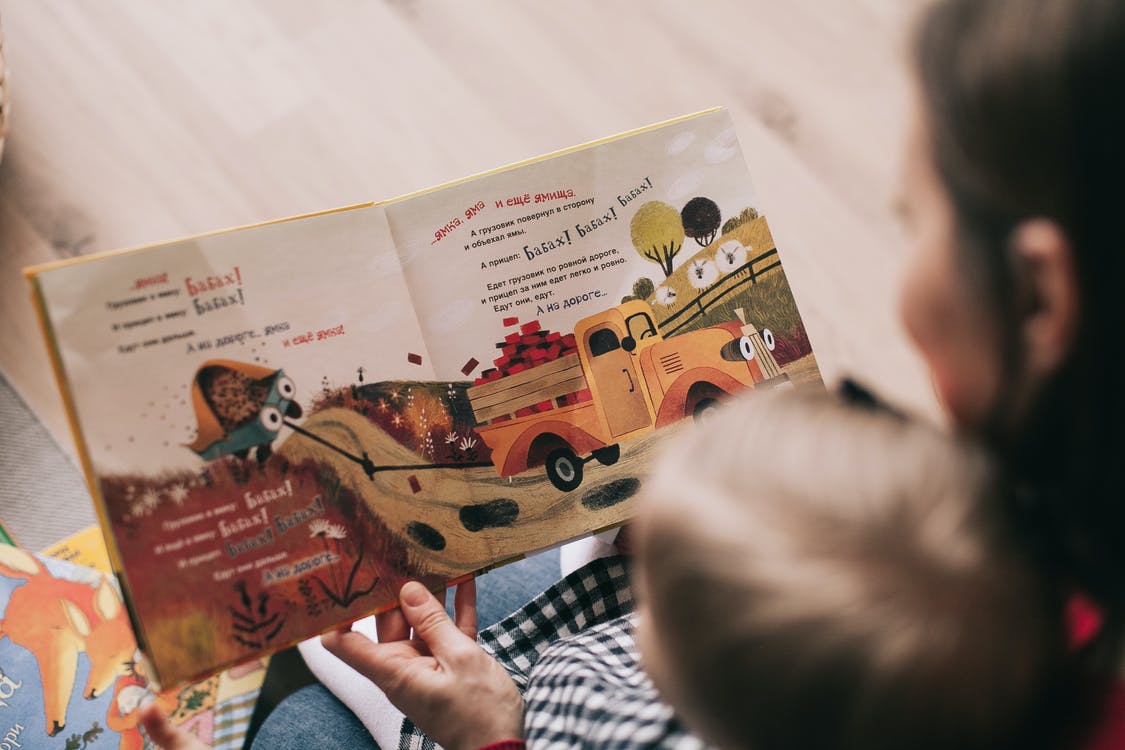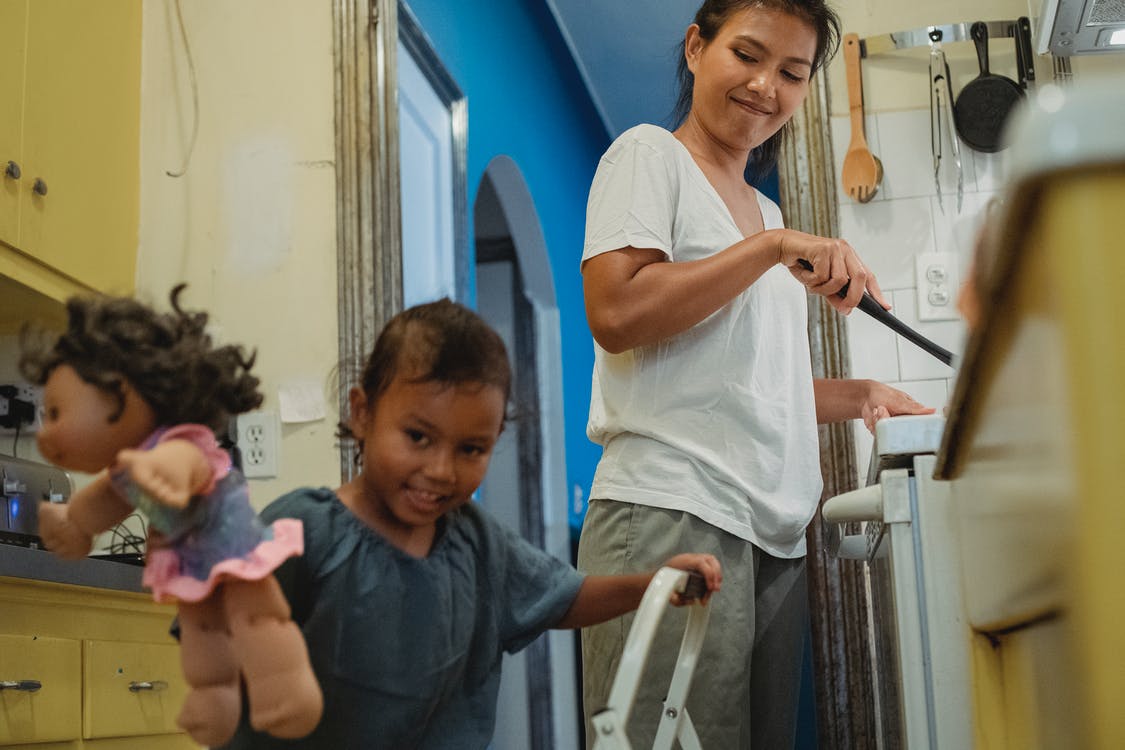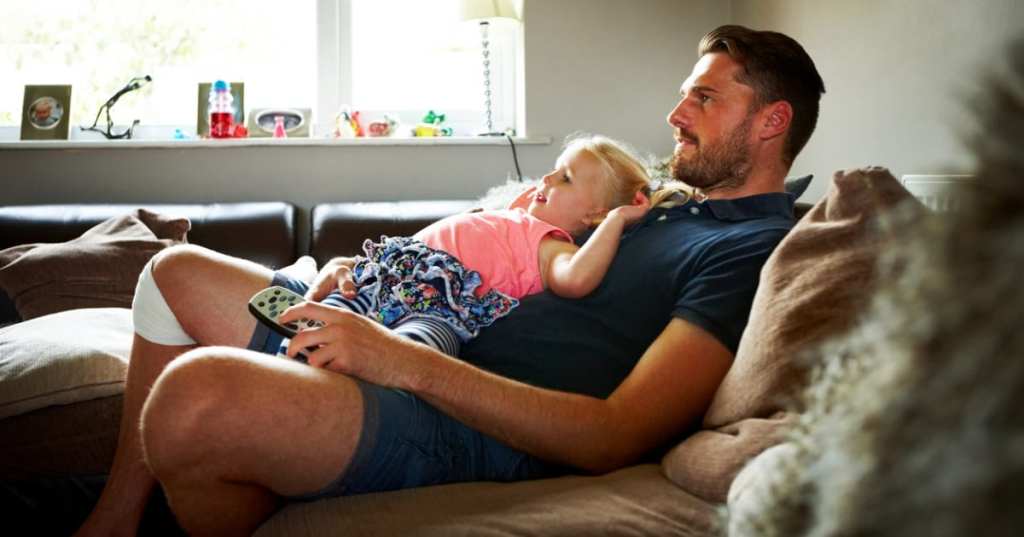I’m a mom. When I’m in charge of my kids, I am doing at least half a dozen things at once – opening snacks, finding a video on YouTube, fixing a broken racetrack, changing a diaper, trying to clean up a mess, let the dog out, or start whatever meal comes next.
I am almost never looking at my phone, and I am watching television even less than that.

Image Credit: Pexels
My husband, though, can “watch the kids” while tinkering with a hobby or binging a bunch of episodes of television, or maybe watching a soccer match or two, and somehow, he thinks we’ve done the same caliber of job.
Now, maybe he has. The kids are alive and well and fed and all of that, so maybe he’s the one whose working smarter and not harder, but most moms I know wish that when their children’s father watched them, he would actually, you know…watch them.
It turns out that we’re not imagining the stark differences in our approaches, either, because this first-of-its-kind study shows that women pull most of the weight when it comes to caring for newborns and tending to housework.

Image Credit: Pexels
The researchers from Ohio State University studied 52 couples through their third trimester of pregnancy and the “fourth trimester,” which is the first 3 months after a baby is born. During those months, dads spent nearly half of their days off work relaxing while the mothers took care of the babies and tended to the home.
That’s not even the worst part, though. On the days when the men were “in charge” of the baby and the housework, women were only able to relax about 16% of the time, the remainder being spent doing things that needed to be done around the house or for the child.
It total, the mothers in the study spent half as much time relaxing as their husbands during those extremely trying months.

Image Credit: Pexels
Claire Kamp Dush, lead author of the study and an associate professor of human sciences at Ohio State, issued a statement.
“It’s frustrating. Household tasks and child care are still not being shared equally, even among couples who we expected would have more egalitarian views of how to share parenting duties.”
The study did find that on workdays, dads managed to make up for some of their shortcomings on their days off, says co-author Jill Yavorsky.
“On workdays, parents are more evenly splitting housework and child care.
It’s very much ‘all hands on deck’ but when there is more time available on the weekend and parents are not so pressed to get everything done, then we see the emergence of gendered patterns and inequality where women do a lot more housework and child care while he leisures.”
Dush reiterated that, since the couples they chose were highly-educated, white, and dual-income households having their first child, the results were surprising.
“I was expecting to see a lot more minutes where the couple was doing some kind of housework or child care together.
I suspect the situation may be even less equitable for women who don’t have all the advantages of the couples in our sample.”
Basically, even though men are doing, on average, 7 more hours of child care and 5 more hours of housework every week than the were in the 60s, duties among married couples still are nowhere close to equal.






